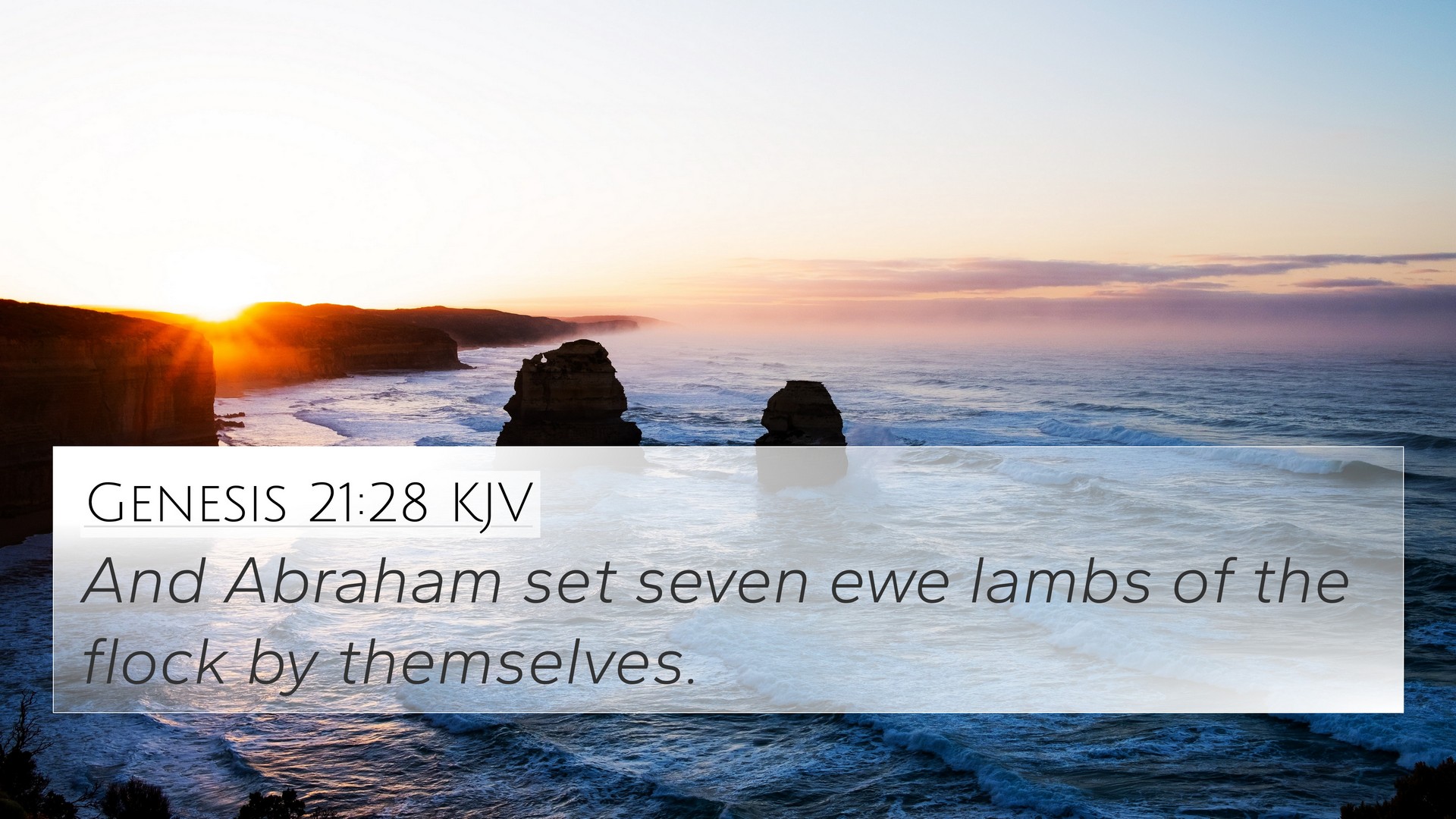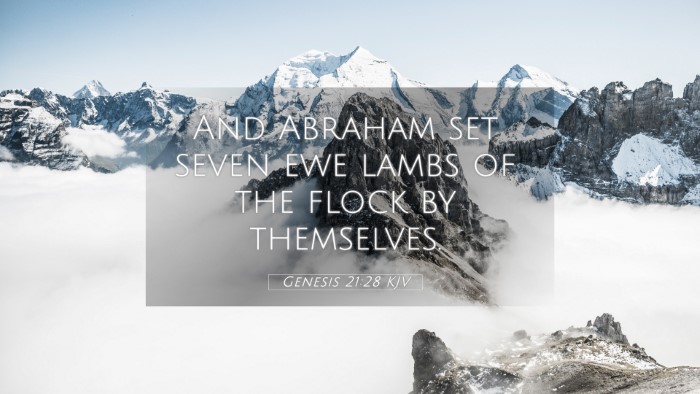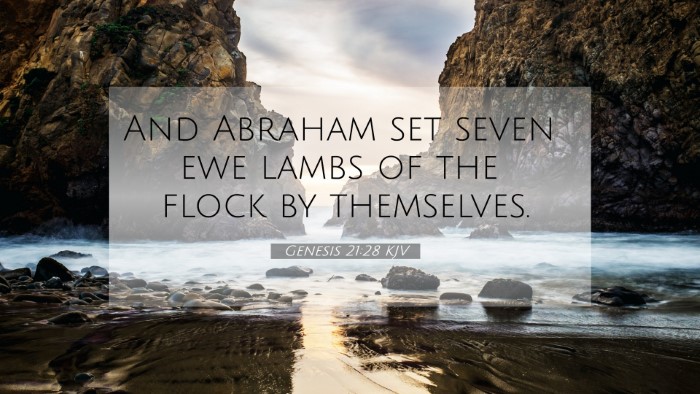Understanding Genesis 21:28
Genesis 21:28 states: "And Abraham set seven ewe lambs of the flock by themselves." This verse occurs in the context of Abraham’s dealings with Abimelech regarding a well of water. The significance of this act, as observed in various public domain commentaries, can be explored through several layers of meaning and their connections to other scripture.
Context and Interpretation
This verse emphasizes Abraham's integrity and his commitment to resolving conflicts amicably. The act of setting aside seven ewe lambs carries symbolic weight and highlights themes of covenant, peace, and the importance of witness in agreements.
Commentary Insights
-
Matthew Henry:
Henry conveys that the seven lambs represent a sacrifice, underscoring the seriousness of Abraham's claim over the well. This act served as a public testimony, ensuring both parties understood the terms of their covenant, thus preventing future disputes.
-
Albert Barnes:
Barnes focuses on the idea of these lambs symbolizing the peace offering made by Abraham to Abimelech. It illustrates a key principle in the biblical narrative: resolving conflicts through peaceful means and stipulating clear agreements in front of witnesses.
-
Adam Clarke:
Clarke mentions that the lambs were utilized as a gift, implying a deeper layer of respect and honor in Abraham's actions. This ritualistic offering reflects the ancient customs surrounding covenants and treaties, further linking this narrative to the larger story of God’s covenant with humanity.
Cross-References and Thematic Connections
The verse invites connections to various other biblical texts that echo its themes of sacrifice, covenant, and conflict resolution. Here are 10 key cross-references that relate to Genesis 21:28:
-
Genesis 12:7 - God’s promise to Abraham and the beginning of his covenant relationship.
-
Genesis 15:9-10 - A similar offering, where God instructs Abraham to prepare animals for a covenant.
-
Genesis 26:25 - Isaac builds on Abraham’s legacy of establishing wells and making peace with the Philistines.
-
1 Samuel 26:20 - David’s plea for peace mirrors the need for joyful reconciliation as seen in Abraham’s act.
-
Matthew 5:9 - Jesus’ beatitude on peacemakers resonates with Abraham's proactive peace negotiation.
-
Romans 12:18 - The call for living peaceably with all humankind reflects the spirit of Abraham's dealings.
-
Hebrews 7:1-2 - Melchizedek, who blesses Abraham, also relates to the thematic elements of righteousness and peace in covenant.
-
2 Corinthians 5:18-19 - The New Testament’s message of reconciliation highlights the ongoing importance of peace among people.
-
James 4:1-2 - Discusses the origins of conflicts, emphasizing the need for peaceful resolutions as practiced by Abraham.
-
Matthew 26:28 - Drawing parallels to the blood of the new covenant signifies the depth of sacrifice involved in promises.
Conclusion
Genesis 21:28 serves as a profound reminder of the importance of peace, integrity, and sacrificial offerings in human relationships. The connections drawn from this verse to others within Scripture provide a robust framework for understanding how biblical themes interlink, ultimately leading to greater insights into God's overarching redemptive narrative.
By utilizing tools for cross-referencing and exploring the thematic connections presented in the Scriptures, one can deepen their understanding of biblical texts. Engaging in comparative Bible verse analysis enhances our approach to spiritual study, revealing how verses support and illuminate each other through inter-Biblical dialogue.


